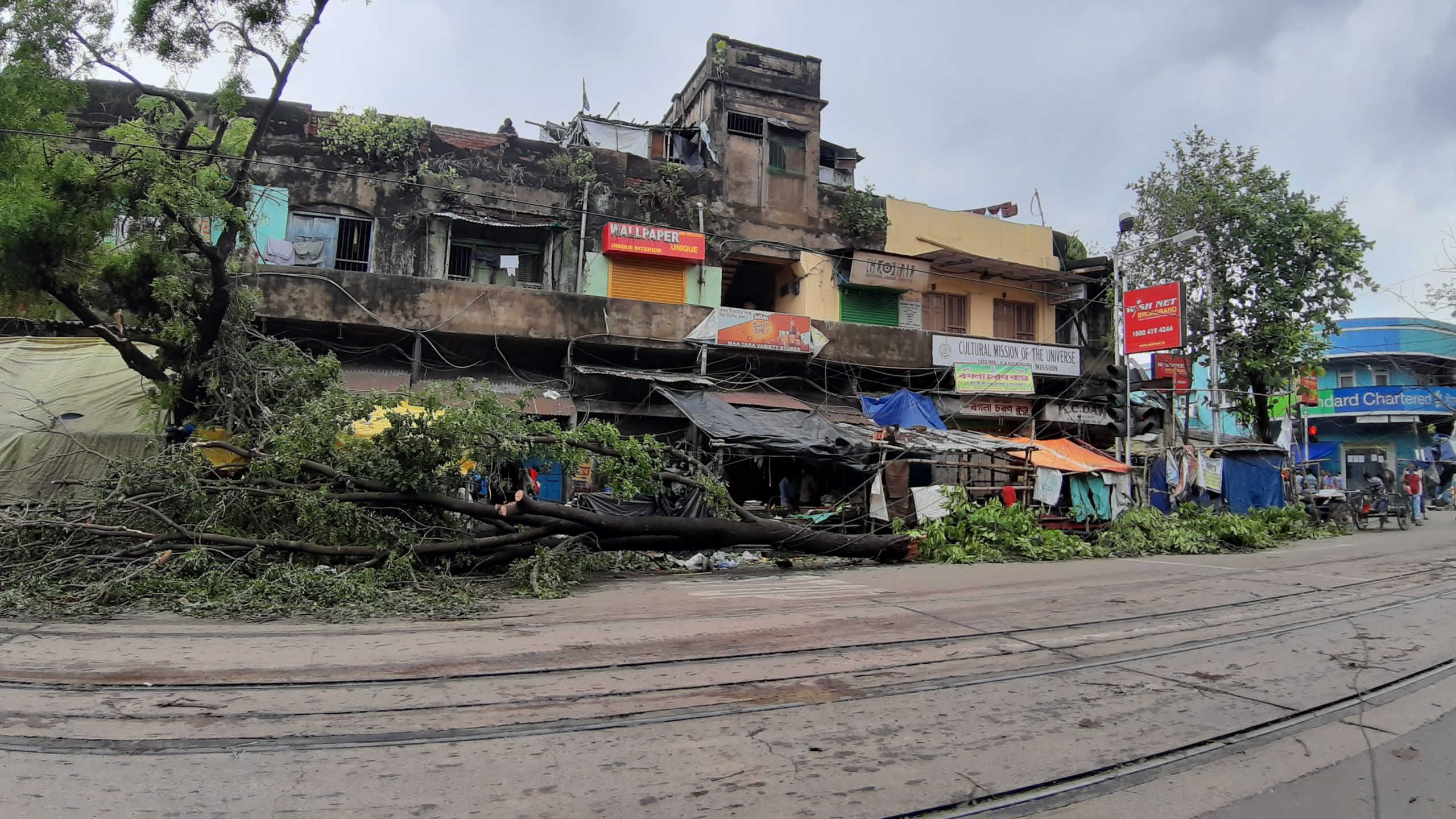Cyclone Amphan and Coronavirus Have Exposed the Failings of Neoliberalism in India and Bangladesh
by Grace Blakeley
22 May 2020

On Wednesday, Cyclone Amphan hit the eastern coast of India and Bangladesh, killing at least 84 people. Now-weakened, the first super cyclone to have formed in the Bay of Bengal since 1999 is making its way north through Bangladesh and towards Bhutan. As the death toll continues to climb, homes, critical infrastructure and crops have been devastated.
India and Bangladesh are now fighting a battle against nature on two fronts: cleaning up after Cylone Amphan and tackling the spread of the coronavirus.
India, a middle-income country that remains marked by extremely high levels of poverty, has more than 100,000 confirmed cases of Covid-19 and over 3,800 deaths. Bangladesh, one of the poorest countries in the world, has nearly 27,000 confirmed cases and around 380 deaths.
Both countries have notoriously weak public health infrastructures and have struggled to roll-out measures such as mass-testing owing to state under-capacity. Both will struggle to impose social distancing given the cramped living conditions faced by many families. The mass evacuations associated with Cyclone Amphan will only serve to increase the challenge.
Meanwhile, under lockdown, those working in the informal economy, along with migrant workers and the industrial working class, have seen their already-low incomes further constrained.
A failure to protect.
In India, where the informal economy employs over 90% of the population, farmers and day labourers have been the first hit by a loss of income as agricultural exports have ceased. While there should be enough food to feed the domestic population, in a country as large as India logistics have always been the real challenge – and lockdown is only exacerbating the issue.
As well as the direct impact on corporate and consumer incomes, the dramatic contraction of the global economy has had an impact on both countries – particularly Bangladesh, which is home to a large textile industry that supplies many western retailers. With consumer spending falling in the global north, orders have dried up and unemployment has increased. Many workers are retreating from Bangladesh’s cities into the countryside. Meanwhile, remittances sent home from those working abroad are falling.
Meanwhile, Modi’s government has announced a bailout package worth over $260bn – around 10% of India’s GDP – including support for small businesses and direct transfers to the poorest. Bangladesh has also announced several fiscal measures worth nearly $8bn – or 2.5% of the country’s GDP. But at the same time, it has also begun the early reopening of many of its textile factories to boost exports, potentially worsening the spread of the virus and putting workers’ lives in jeopardy. Both countries have been accused of failing to protect the most vulnerable.
Unlike other poor countries, many of which are currently in deep debt distress, India and Bangladesh have a moderately high standing among international creditors. In Bangladesh’s case, this is the legacy of several successive structural adjustment programmes imposed by the IMF in exchange for loans.
As one of the first countries to implement the required neoliberal ‘reforms’, Bangladesh has become something of a poster child for structural adjustment, even as poverty has remained high and working conditions have deteriorated, leading to disasters like the 2013 Dhaka factory collapse, which killed over 1,000 workers.
In India, Modi’s election was greeted with delight by the international community, given his business-friendly rhetoric and his commitment to pushing through long-awaited free market ‘reforms’. But many investors have been disappointed by the slow progress of Modi’s reform agenda, with the Hindu nationalist prime minister instead focussing on ruthlessly targeting the country’s Muslim minority.
The myth of neoliberalism.
The favour of international investors will do little to help either India or Bangladesh as the coronavirus crisis continues and the impact of climate breakdown begins to hit both nations.
The response to both crises will require a significant increase in government borrowing, potentially leading to a loss of confidence amongst notoriously fickle bond investors. But without significant increases in state spending, tens of thousands more people could be killed over the coming years by both coronavirus and the increasing frequency and severity of natural disasters associated with climate breakdown.
Countries like India and Bangladesh have been told for decades that if they simply implement neoliberal reforms – privatisation, capital account liberalisation and austerity – they will eventually catch up with the rich world. Yet it has been clear for decades that this promise was illusory. Rigid followers of the Washington consensus such as Bangladesh have sacrificed the health and wellbeing of their workers for the profits of international capital.
Instead, these states have watched as nations that defy the international financial institutions have overtaken them. China and other east Asian developmental states are some of the only countries that have managed to escape the trap of neocolonialism and dependency by combining significant state intervention in the economy with political authoritarianism.
What countries like India and Bangladesh need from the rest of the world is not yet more structural adjustment, but freedom from the strictures imposed upon their people by huge multinational corporations and international finance.
Only a united global south would be capable of standing up to the combined power of international capital and its sponsors in the imperialist states of the global north.
With all the world’s poorest countries now facing the same public health crisis, perhaps 2020 will be the year when this unity is finally realised.
Grace Blakeley is an economics commentator and author of Stolen: How to Save the World from Financialisation.